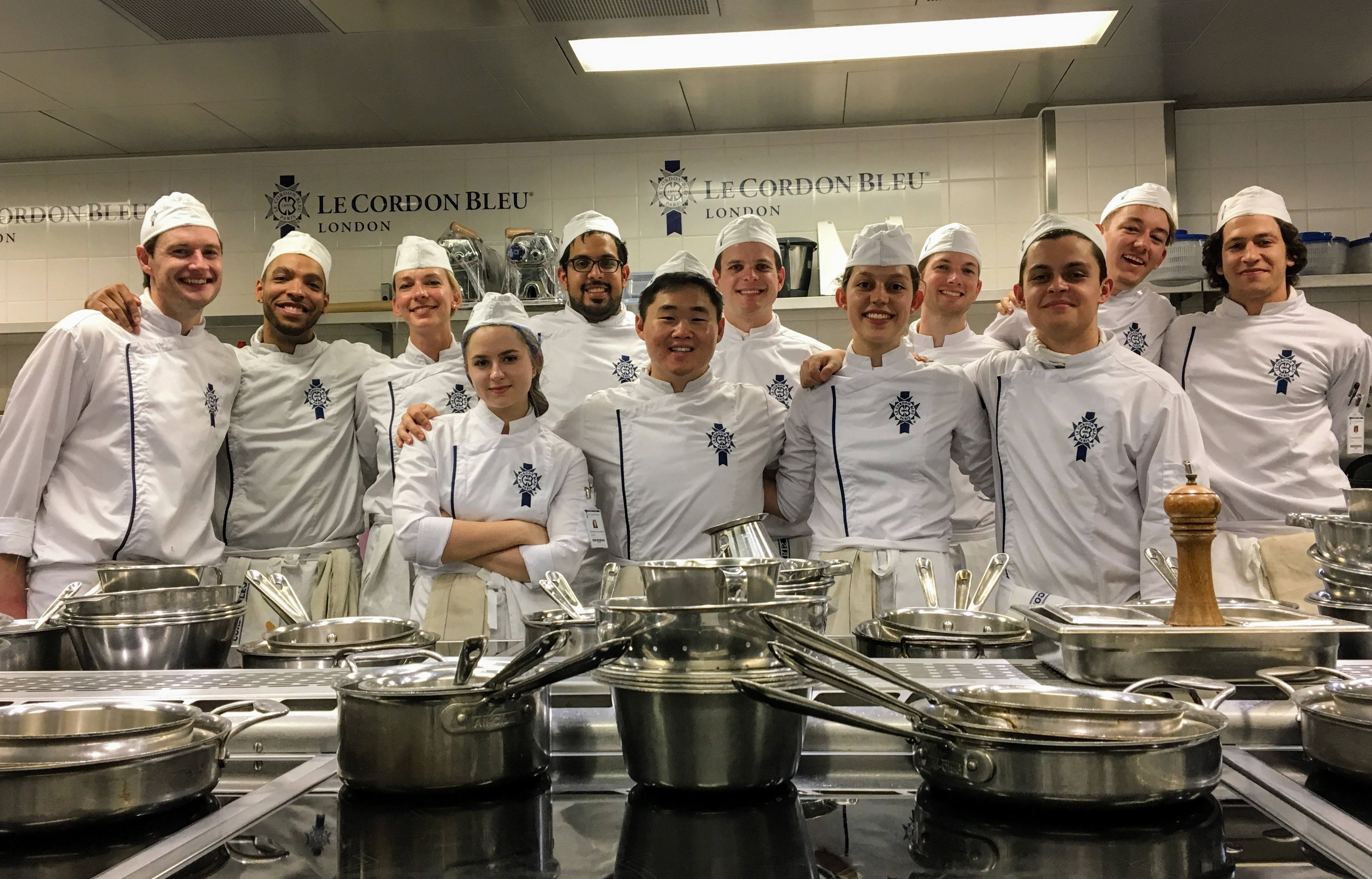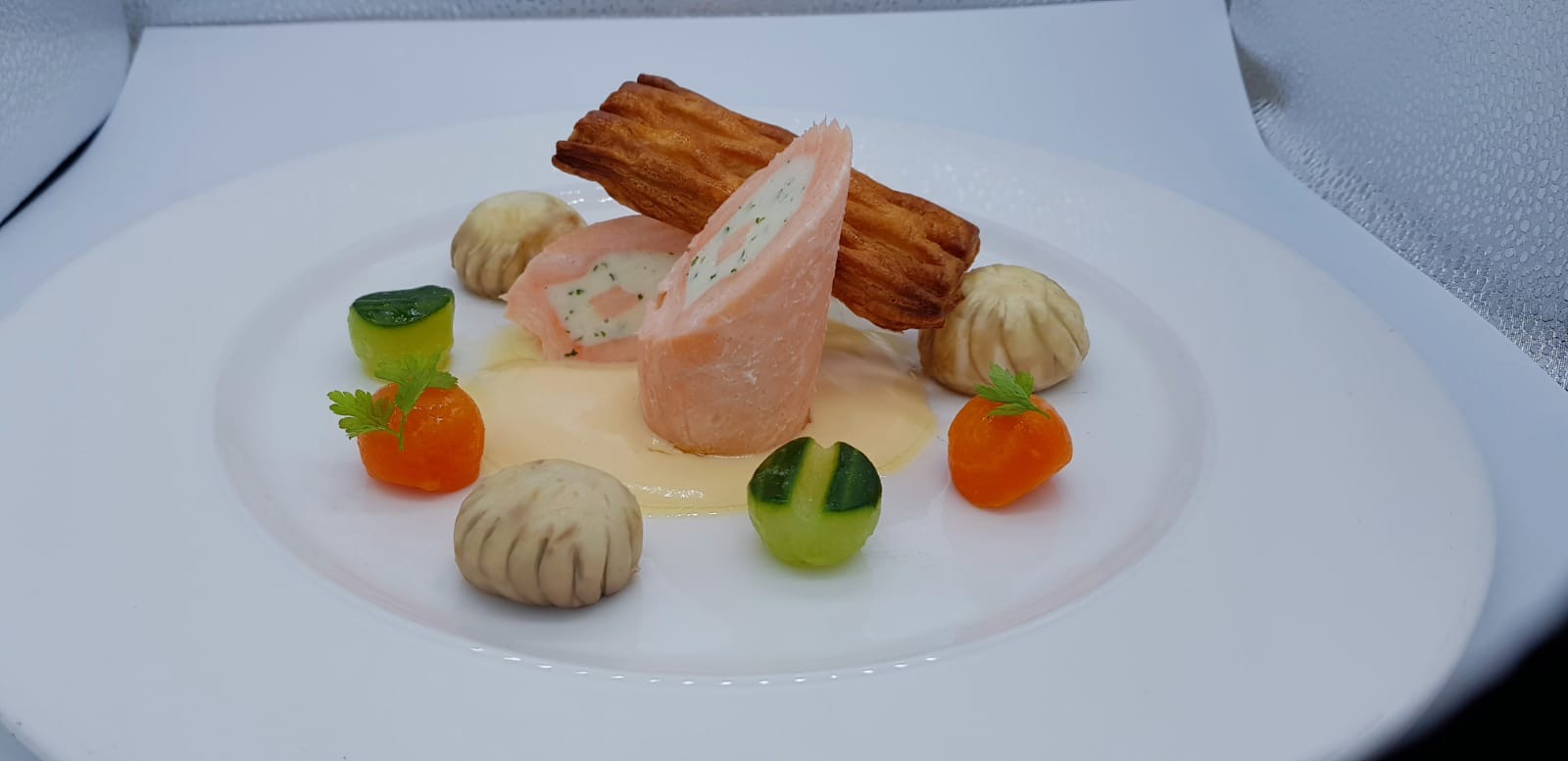by Sunita Chambore, Student-led Initiatives Manager
Dinesh Chugani (MBA2020) is the Treasurer of the Student Association. He shares his love of food and business and how he spent his summer pursuing his passion.
 Did you have a plan for Summer 2019 before you joined the school?
Did you have a plan for Summer 2019 before you joined the school?
Since childhood, I’ve had a passion for all things food, thus I first considered cooking school as an option to fill the time between my last day of work and the start of the LBS semester. Unfortunately, this didn’t line up with programme dates and I was forced to shelf the idea. This January, right before the internship recruiting season commenced, the thought of culinary school reoccurred to me. Once I learned that Le Cordon Bleu London had an intensive programme that fit perfectly into the summer months, it seemed like the obvious choice.
Why did you decide not to do an internship or Entrepreneurship Summer School?
Despite my passion, I have spent my entire career, thus far, in banking and professional services. Upon graduation, I plan on returning to The Boston Consulting Group in Dubai, where I’ve worked for the past 3 years. Attending cooking school this summer seemed like a perfect way to test if I could, one day, turn a hobby into a potential part of my career.
Why Le Cordon Bleu London Culinary School?
A combination of: the intensive programmes (3 month programmes condensed into 6 weeks), location, reputation and timing all played into my decision; however it was the one day taster I did in mid-January which truly convinced me to sign up. Furthermore, through Cordon Bleu Alumni, I learned that while the course was indeed targeted towards professionals, the summer intensive programme often attracted hobbyists like myself, who were also interested in furthering their passion for cooking and food.

What was the most valuable business lesson you learnt at Cordon Bleu?
- Awareness of food wastage and how to minimise it: Food waste is a global issue. The UN estimates that “roughly one third of the food produced in the world for human consumption every year — approximately 1.3 billion tonnes — gets lost or wasted”. This is the equivalent of nearly US$ 1 trillion. The chefs at Cordon Bleu are great at highlighting uses for all parts of an animal, fruit or vegetable ensuring that should I one day open an F&B business of my own, I can design a menu which efficiently uses every ingredient.
- Organisation & Planning: With just 2 hours during each practical to put together a dish, our organisation and planning is crucial. It has taught me to think ahead in detail about the final dish that I’m producing so I can efficiently overlap passive and active tasks. This means I can maximise the utilisation of the equipment around me and deliver a dish in the least amount of time possible.
- Team Work: Furthermore, despite each of us having to present our own dish at the end of the session, there are often tasks in the kitchen which should be completed as a team. To support this, Le Cordon Bleu provides each pair of students a week during which they act as team leaders. During my rotation, I was able to test my current leadership style, which has naturally evolved based on experiences and classes such as Science of People in Organisations (SPO), and adapt it to the new kitchen environment.
- Discipline: With consulting you are able to learn and implement as you work as all work is done digitally. With cooking you implement what you learn on your next dish making for a very different working style. For example, when it comes to creating a client deliverable in consulting, you often work to create a first draft which you then build upon and improve over time. This is not the case with cooking. From the outset, what you prepare plays a role in the final plate, often by the time you have recognised your mistake it’s too late to make an adjustment to that plate – instead you must remember to rectify it the next time round. Imagine if you were making your client deck using just a paper and pen as opposed to PowerPoint – how would that impact the way you work?
Any advice on how MBA2021 students can get the most out of Summer 2020?
Take time to sit down and reflect upon what you wish to gain from your summer internship. Do you want to acquire a new skill? Test out a new industry? Contribute towards a cause you believe in? You will see your peers focused on a single set of industries, the traditional post-MBA careers, but that should not make you feel pressured to follow suit – make your own plan and stick to it.
You’re halfway through your course. What has been the most memorable moment so far?
Exploring new countries as part of the treks organised by the various student clubs has without a doubt been a defining moment of my time at LBS. The trips have been endless, and the hospitality of my peers, alongside their eagerness to show us their home countries, has been second to none.
What are you looking forward to?
While I look forward to trips in the coming year, I am most excited about my role as Treasurer for the Student Association and the new challenges it brings!
Why did you decide to come to LBS?
My decision to come to LBS was threefold: location, flexibility and reputation. I wanted to experience living in a new city whilst not being too far from home (Dubai); I appreciated the flexibility the LBS programme provided with its 15, 18 & 21 month exit points; and finally I wanted to become part of an Alumni community that could one day support me in my career aspirations.
If you weren’t doing an MBA right now, what would you be doing?
The MBA has provided me with the opportunity to grow professionally and rapidly expand my network. This summer has allowed me to explore an area of passion and confirm my desire to one day work in the Food & Beverage industry. If not for LBS and this past summer of culinary exploration, I would likely have continued on my journey as a consultant; it has provided me with the chance to explore multiple industries, challenge the way established organisations go about business and support these same organisations in their digital transformations.
Who or what are you fascinated by at the moment?
- Food trucks: Whilst around for several years now, they have provided aspiring chefs with an opportunity to showcase their talent. With substantially lower starting costs, food trucks have made the industry a lot more accessible. As a result, we as consumers are gaining access to more and more cuisines and flavours from around the world.
- Supper Clubs: A surge in platforms like EatWith connect aspiring chefs who wish to convert their homes into a supper club venue with local adventurous foodies and tourists.
- Cloud kitchens: The restaurant industry is quickly changing with companies looking to create delivery-only brands. This again reduces the costs to entry for a potential restaurateur, but also provides opportunities for existing restaurants to increase utilisation of their kitchen through a delivery-only service during off-peak hours.
